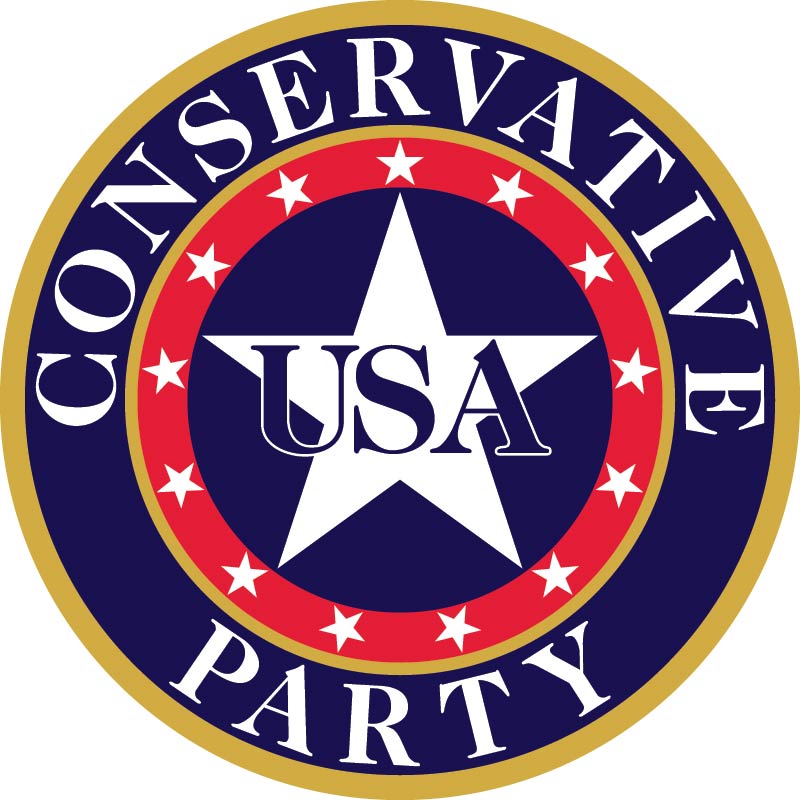Hello all, welcome to the third installment of this blog thing. Today, we'll be looking at political parties and the current US president as of 2018. Firstly, what are political parties, and what's their purpose? Political parties are groups of people with similar views that organize so that they can have more power with their votes in the elections. They also link the general public with the government, by increasing the chance of an individual's candidate to be elected. They're very important for giving the general public more power and a more important role in the government.
By my own volition, and totally not because of a project called Deconstructing Politics in America, I choose to research the Conservative Party. They strive to limit the congress to it’s delegated and enumerated powers, uphold the declaration of independence, constitution, and bill of rights. I chose this party because it seemed the most interesting at the time, and not because it was the first one on the list of political parties. One issue this group stands for is the topic of gun rights. They say that the right to bear arms is inherent to all U.S citizens, so we should repeal all gun laws, starting with the federal firearms act of 1968. If guns are outlawed, only the outlaws will have guns. There was only one piece of evidence that was used, which was the second amendment. No mention of the 14th amendment protecting the right was made. They do make a counterclaim, saying that when guns are outlawed, only outlaws will have them. However, they fail to use any evidence in the counterclaim, so there’s nothing to back up their claims. The site does make use of words such as right and constitution, in order to instill emotion from the reader. The author is not stated, but I can assume they are a supporter of the constitutional party. It’s not stated who pays for the website.
This is Donald John Trump. If you don't know him,have you been living under a rock ya scrub he's our current U.S president. In addition, he's a republican, Before we go about his political stance and all that, let's first talk about how he got to this situation. He was born on June 14th, 1946, in Queens New York. He entered Fordham University, and transferred to the Wharton School of Finance two years later. With a degree in economics, he would eventually go one to announce that he would be running for president. As you most likely know, he did win the election, winning the electoral 306 vote to 232. However, he did lose the popular vote, with Hillary Clinton winning by over 2.9 million people (remember this, it becomes important later).
Now that you know who he is, let's discuss an artifact about him (if you don't remember what an artifact is, go see my last post). This artifact comes from Twitter, which is a social media site. Here, President Donald Trump says the following:
Well, that's about it for me this post, hope you enjoyed it.
By my own volition, and totally not because of a project called Deconstructing Politics in America, I choose to research the Conservative Party. They strive to limit the congress to it’s delegated and enumerated powers, uphold the declaration of independence, constitution, and bill of rights. I chose this party because it seemed the most interesting at the time, and not because it was the first one on the list of political parties. One issue this group stands for is the topic of gun rights. They say that the right to bear arms is inherent to all U.S citizens, so we should repeal all gun laws, starting with the federal firearms act of 1968. If guns are outlawed, only the outlaws will have guns. There was only one piece of evidence that was used, which was the second amendment. No mention of the 14th amendment protecting the right was made. They do make a counterclaim, saying that when guns are outlawed, only outlaws will have them. However, they fail to use any evidence in the counterclaim, so there’s nothing to back up their claims. The site does make use of words such as right and constitution, in order to instill emotion from the reader. The author is not stated, but I can assume they are a supporter of the constitutional party. It’s not stated who pays for the website.
Study a politician
This is Donald John Trump. If you don't know him,
Now that you know who he is, let's discuss an artifact about him (if you don't remember what an artifact is, go see my last post). This artifact comes from Twitter, which is a social media site. Here, President Donald Trump says the following:
This post derives from the day after Trump’s inauguration, due to the Women's March on Washington. Many celebrities joined the march to protest trump’s stance on many issues. Trump asks why they’re protesting, as they just had an election. Why didn’t they vote? In response to this, many U.S citizens responded, pointing out the fact that they did vote, which is why Trump lost the popular vote. This loss of the popular vote is omitted, which is a weakness in his argument. To make this claim, Trump would have to provide proof that the celebrities in the march did not actually vote in the election.
Well, that's about it for me this post, hope you enjoyed it.


Comments
Post a Comment